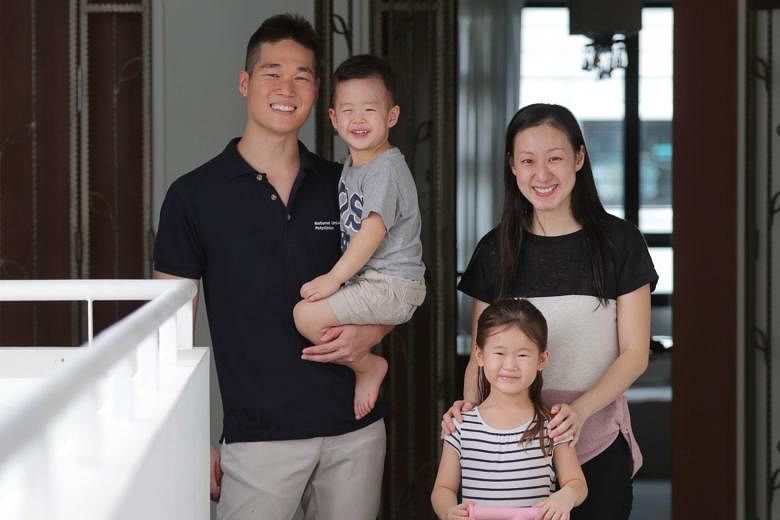Nine in 10 family doctors in Singapore feel safe with the support and equipment they have been given, and prepared for the fight against the coronavirus, a study has shown.
Of the 216 polyclinic doctors and general physicians (GPs) surveyed, about eight in 10 also said they would share with their loved ones the nature and risk of their work.
The study, conducted between March 6 and 29, was released to mark World Family Doctor Day today. It asked doctors from the National University Health System's polyclinics and family clinics as well as members of the College of Family Physicians Singapore to fill up an online questionnaire.
Its principal investigators told The Straits Times that the study is the first in South-east Asia to examine the psychological and social impact of Covid-19 on primary care physicians (PCPs).
Associate Professor Tan Ker Kan of the National University of Singapore's Yong Loo Lin School of Medicine said they wanted to focus on GPs and polyclinics as other studies had looked at healthcare workers in other areas like acute hospitals. "PCPs undergo a lot of stress during the pandemic, and I felt it should be highlighted. They are often the first to see potential Covid-19 cases, and to decide whether to refer them to NCID (National Centre for Infectious Diseases)," said Dr Tan.
He estimated that seven in 10 cases of local Covid-19 transmission in February and March had first visited a PCP before being diagnosed, based on public data from the Ministry of Health (MOH).
Family doctors have to decide whether to conduct swab tests or refer a patient to NCID immediately, based on MOH's guidelines about symptoms and contact history, among other things.
Co-investigator Dr David Tan, who is deputy director of family medicine development at National University Polyclinics, said PCPs often encounter patients whose diagnosis is not clear-cut.
Dr Hou Minsheng, one of the survey's interviewees, recalled a patient whom he treated at Choa Chu Kang Polyclinic's "red zone" for potential Covid-19 cases.
The man had a fever and was short of breath, but it turned out that he was suffering a serious form of heart attack. He was taken to a hospital immediately.
"Covid-19 is a new illness, and there is a lot of information being shared as we go along which can help to diagnose it more accurately. While we can use swab tests to confirm diagnoses, ultimately the supply is not limitless and needs to be used prudently," said Dr Hou.
The survey's results are encouraging, said Dr David Tan, who is also a family physician.
"There was some apprehension when the pandemic first broke, but the results show that despite these worries, family doctors have risen to the occasion," he said.
The study also found that more than nine in 10 accept the risk of infection as part of their job, and prioritise patient care. A similar ratio said they would not leave their profession because of the risks.
While the questionnaire used in the survey was based on one taken during the severe acute respiratory syndrome (Sars) crisis in 2003, the results reflect how the situation has changed.
Both investigators said past experiences with Sars and H1N1 have better prepared Singapore for the current outbreak. For example, two-thirds of private practice PCPs surveyed were in the Government's Public Health Preparedness Clinics scheme, which would have prepared them for pandemics.
Another factor is greater communication. Dr Tan Ker Kan recalled that he was still using a pager when Sars broke out. But today, medical professionals have their own WhatsApp and Telegram groups to share information and to confide in one another.
For Dr Hou, his peace of mind stems from his wife holding the fort at home and taking care of their two children, aged three and five. He said: "My kids often ask, why do I need to still go to work when others don't? I tell them that there are people who are still ill and that it's a privilege to be able to help those who need it."












